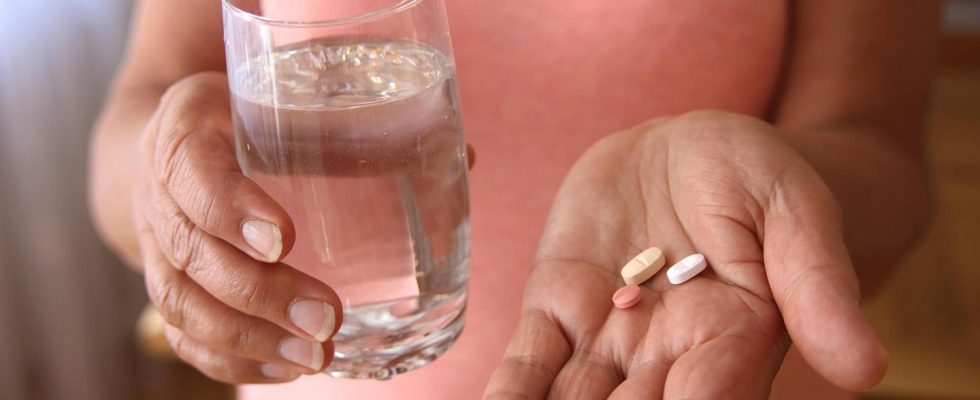medicine cabinet
Why you should also protect medicines from heat
Tablets and dragees are not as sensitive to heat as other medicines.
© Ruediger Rebmann/ / Picture Alliance
The temperatures in Germany have been summery for weeks. Anyone who drinks a lot and avoids direct sun can endure it well. But what happens to medicines when it is hot?
Medicines can also make it too hot in summer. If the temperature is too high, pills, suppositories and the like can lose or change their effectiveness.
“Strictly speaking, the correct storage temperature for medicines is actually 8 to 25 degrees,” says Dr. Peter Sandmann, pharmacist and spokesman for the Bavarian Chamber of Pharmacies opposite the “BR”. The optimal temperature is between 15 and 25 degrees. Anything above that is too warm, he continues.
Tablets and dragees are most resistant to high temperatures. A tablet can withstand an ambient temperature of 50 degrees for around 30 minutes. But after that it also becomes critical with tablets, informs the Techniker Krankenkasse.
Medications can become ineffective in the heat
Peter Sandmann explains what exactly happens when medicines are exposed to heat: “In the simplest case, the medicines melt like suppositories, for example. But it can also happen that they break down – then the active ingredient is lost, which of course is not wanted either. Or Substances are created that trigger increased side effects. And of course you don’t want that at all.”
Juices, ointments or solutions are very sensitive to heat. In the case of ointments, for example, the solid components can separate from the liquid components. The Techniker Krankenkasse advises to dispose of medicines if you see such changes in ointments, juices or pills.
Snacking without regrets
From avocados to blackberries: twelve low-sugar fruits
Never store medicines in the bathroom
If the temperature in the apartment rises above 25 degrees, the medication can be stored in a dry place in the refrigerator or in the basement. Incidentally, the bathroom and kitchen are never suitable for storing medication – it is too humid and often too warm there.
In summer, however, the effect cannot only be influenced by storage. For example, heat increases the antihypertensive effect of drugs such as ACE inhibitors. Anyone who has to take such medication should discuss with their doctor whether a lower dose of the medication should be taken in the summer.
People who take dehydrating medication should pay close attention to their fluid intake in summer: “For example, a reduced feeling of thirst and the simultaneous intake of dehydration tablets can lead to the body ‘drying out’,” writes the North Rhine-Westphalia consumer advice center. In the case of longer periods of heat, she recommends adjusting the dosage if necessary – this should only be done in consultation with the doctor.
Also read:
– What you should know about the shelf life of medicines
– Why ice cream gives us headaches
Sources: Technicians’ Health Insurance, BR, Consumer Center North Rhine-Westphalia


